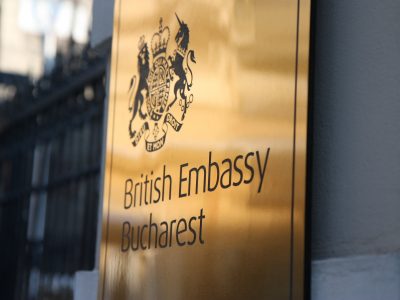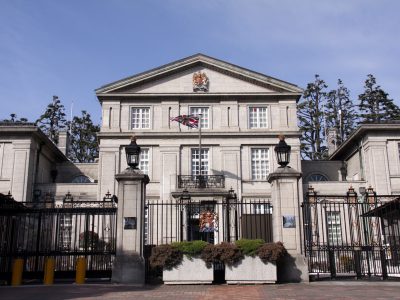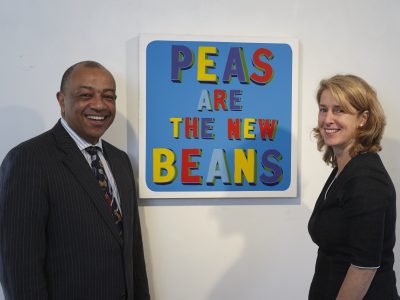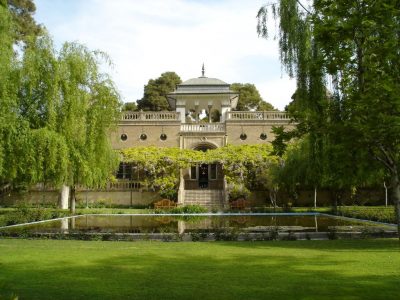Cultural diplomacy and soft power
What does art have to do with international diplomacy, and how does the Collection help flex Britain’s soft power?
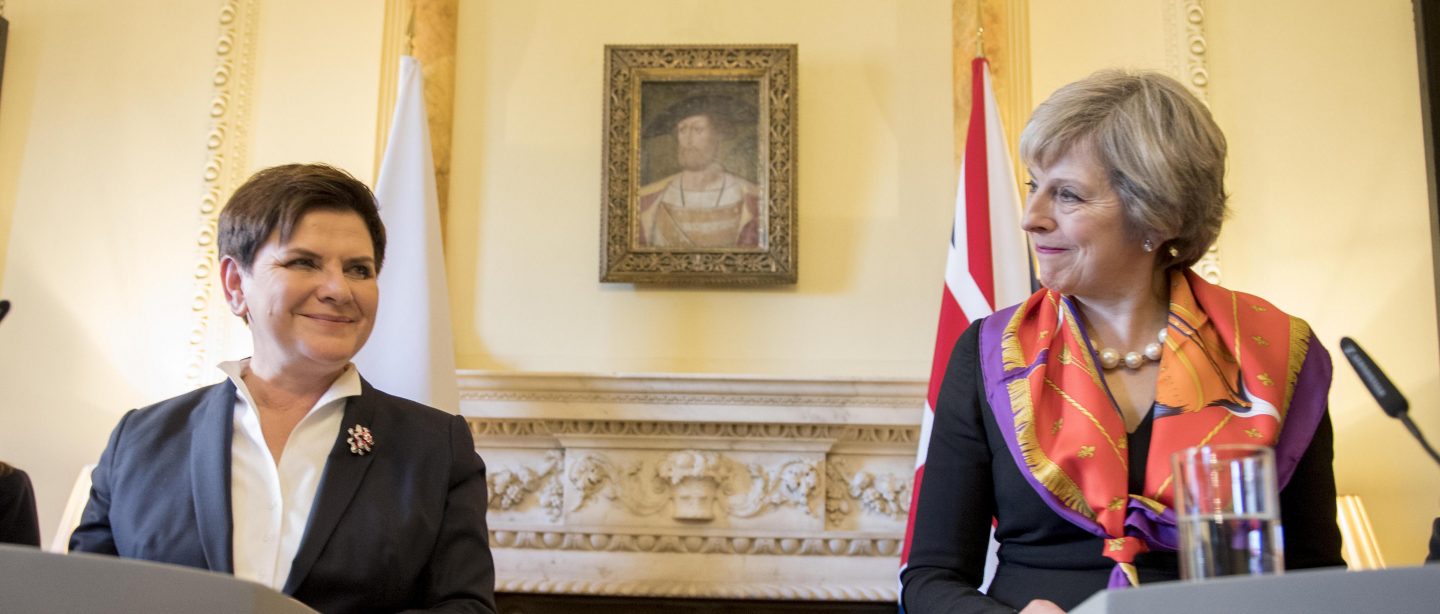
Former Prime Minister Theresa May hosted the Prime Minister of Poland, Beata Szydło for bilateral talks between the two nations © Crown Copyright / image: Tom Evans
Art and diplomacy - what’s the connection?
Britain has long-standing relationships with overseas cultures, forged as a maritime nation and an imperial power. These connections can be expressed powerfully and with an immediacy through art and culture. When placed in the right context, many of the works in the Government Art Collection present quiet ways to assimilate past encounters with a culture while offering a continuity with the present.

Why do we need cultural diplomacy?
Exchanges of ideas, values, traditions and other aspects of culture or identity are examples of cultural diplomacy. These exchanges help strengthen relationships with other countries and in doing so, enhance social and cultural cooperation. This work is  a portrait of the Qajar ruler, Fath’Ali Shah by Ahmad, currently on display in the British Embassy in Tehran. In 1810, this Iranian ruler with his exceptionally long beard and ‘wasp-like waist,’ granted permission to the first British Ambassador to Iran, Sir Gore Ouseley, to establish the British Embassy in Tehran. Although that building no longer exists and was been replaced with a new one in the second half of the 19th century, Ahmad’s painting is an eloquent reminder of the long association between the two countries. Its installation in 2019 in the British Embassy in Tehran is even more meaningful today: having been restored after witnessing the 2011 attack on the Embassy when the two countries broke off diplomatic ties. These were resumed 2016, and the portrait of Fath’Ali Shah now carries a new layer of history within the cultural and diplomatic relations between the UK and Iran.
a portrait of the Qajar ruler, Fath’Ali Shah by Ahmad, currently on display in the British Embassy in Tehran. In 1810, this Iranian ruler with his exceptionally long beard and ‘wasp-like waist,’ granted permission to the first British Ambassador to Iran, Sir Gore Ouseley, to establish the British Embassy in Tehran. Although that building no longer exists and was been replaced with a new one in the second half of the 19th century, Ahmad’s painting is an eloquent reminder of the long association between the two countries. Its installation in 2019 in the British Embassy in Tehran is even more meaningful today: having been restored after witnessing the 2011 attack on the Embassy when the two countries broke off diplomatic ties. These were resumed 2016, and the portrait of Fath’Ali Shah now carries a new layer of history within the cultural and diplomatic relations between the UK and Iran.
Join the Collection’s historical curator, Laura Popoviciu, as she looks at the art in the Foreign and Commonwealth Office in London and considers what the Collection tells us about Britain’s diplomatic story in the world.
Soft Power
The ability to persuade through culture, values and ideas as opposed to military might is called soft power. American political scientist Joseph Nye, one of the first to define soft power in this way, had a strong influence on the Clinton and Obama administrations in the USA and ideas of soft power are taking increasing precedence all over the world. Britain’s GREAT campaign and China’s Confucius Institutes are examples of soft power in action.
